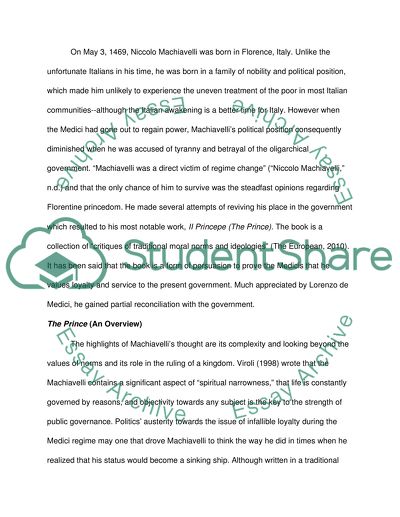Cite this document
(“What role do the concepts of virtu and fortuna play in Machiavellis Essay”, n.d.)
Retrieved from https://studentshare.org/politics/1404975-what-role-do-the-concepts-of-virtu-and-fortuna-play-in-machiavellis-political-thought
Retrieved from https://studentshare.org/politics/1404975-what-role-do-the-concepts-of-virtu-and-fortuna-play-in-machiavellis-political-thought
(What Role Do the Concepts of Virtu and Fortuna Play in Machiavellis Essay)
https://studentshare.org/politics/1404975-what-role-do-the-concepts-of-virtu-and-fortuna-play-in-machiavellis-political-thought.
https://studentshare.org/politics/1404975-what-role-do-the-concepts-of-virtu-and-fortuna-play-in-machiavellis-political-thought.
“What Role Do the Concepts of Virtu and Fortuna Play in Machiavellis Essay”, n.d. https://studentshare.org/politics/1404975-what-role-do-the-concepts-of-virtu-and-fortuna-play-in-machiavellis-political-thought.


